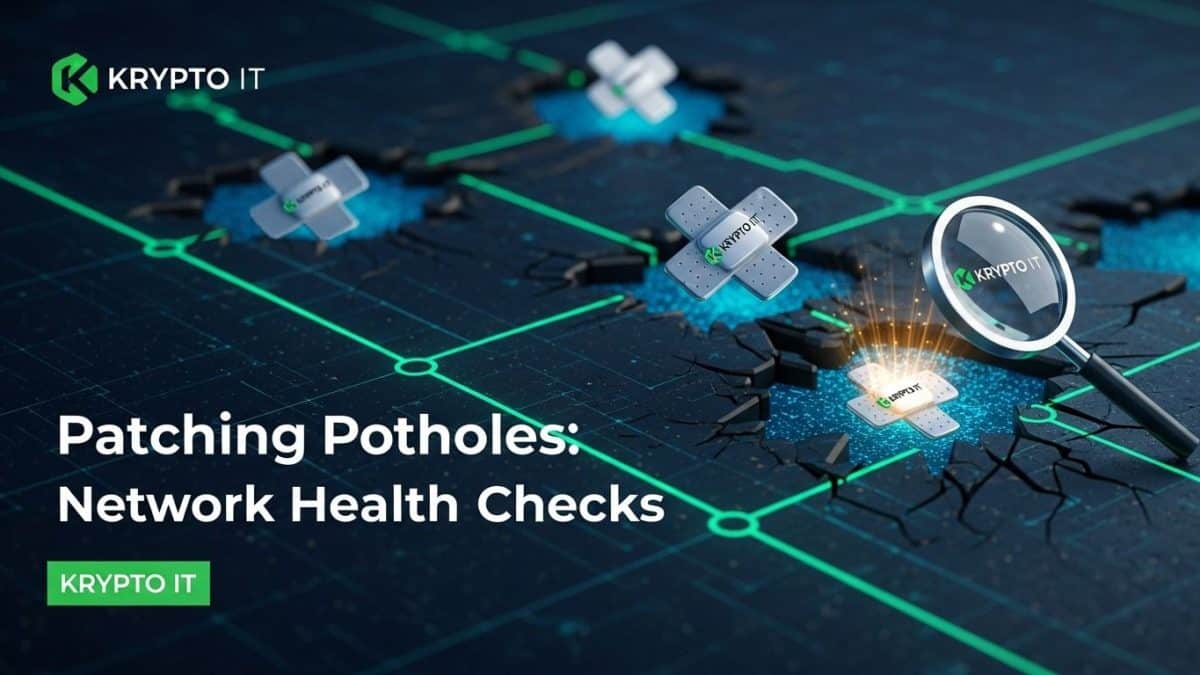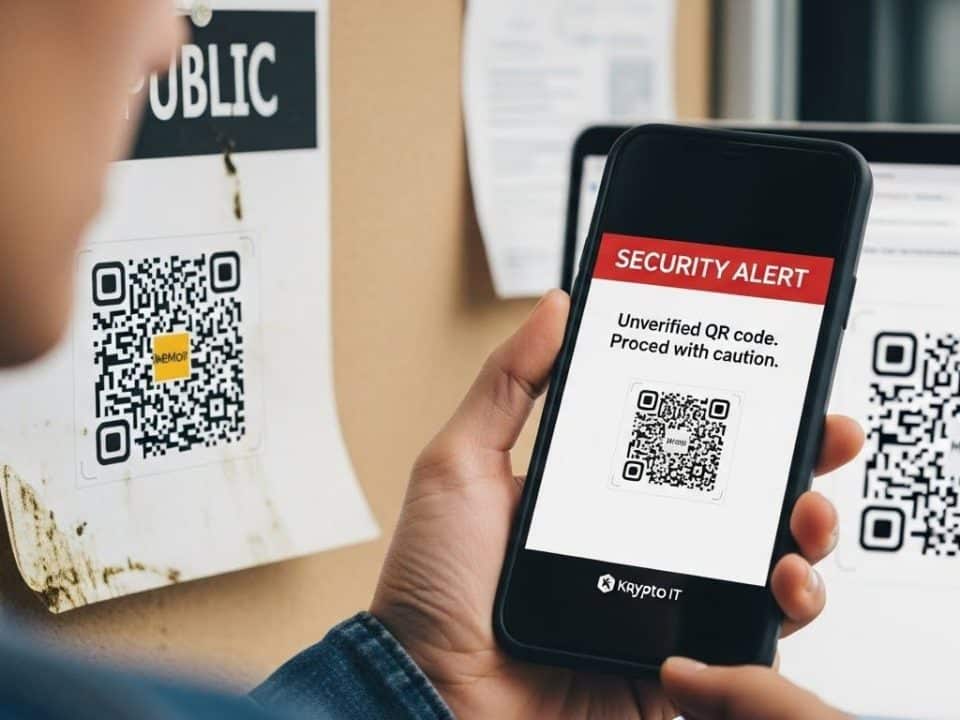
Stop Network Noise: Spot Suspicious Activity
August 2, 2025
The ‘Insider’ Threat: Protect Your Network
August 5, 2025Keeping Your Houston Business Running Smoothly and Securely
Just like the roads in Houston, your business network can develop “potholes” over time – vulnerabilities, outdated configurations, performance bottlenecks, and security gaps that can slow you down or even cause a major breakdown. Ignoring these issues is not an option; regular network “health checks” are essential to ensure your digital infrastructure runs smoothly, securely, and efficiently. Think of it as preventative maintenance for your critical business lifeline.
For Small and Medium-sized Businesses (SMBs) in Houston, a proactive approach to network health is crucial for maintaining productivity, protecting sensitive data, and avoiding costly downtime. This blog post will outline why regular network health checks are vital and provide a practical guide on how to conduct them.
The Hidden Costs of Neglecting Your Network’s Health
Ignoring the underlying health of your network can lead to a multitude of problems, many of which can significantly impact your bottom line:
- Security Vulnerabilities: Outdated software and firmware often contain known security flaws that cybercriminals actively exploit. A neglected network is an easy target for malware, ransomware, and data breaches, leading to significant financial losses, legal liabilities, and reputational damage.
- Performance Degradation: Over time, network devices can become misconfigured, overloaded, or running outdated firmware, leading to slow internet speeds, dropped connections, and application lag. This directly impacts employee productivity and customer satisfaction.
- Increased Downtime: Undiagnosed issues can escalate into major network outages, halting critical business operations and resulting in lost revenue. Identifying and addressing minor problems early can prevent these costly disruptions.
- Compliance Violations: Many industries in Houston and beyond are subject to regulations (e.g., HIPAA, PCI DSS) that require businesses to maintain a secure and properly functioning network. Regular health checks help ensure compliance and avoid hefty fines.
- Wasted Resources: Inefficient network configurations can lead to wasted bandwidth and unnecessary hardware upgrades. A health check can identify areas for optimization, saving you money in the long run.
- Difficulty Scaling: An unhealthy network can hinder your ability to adopt new technologies or scale your operations as your business grows. Addressing underlying issues ensures a solid foundation for future expansion.
Your Network’s Regular Check-Up: What to Include
A comprehensive network health check for your Houston SMB should encompass several key areas:
- Security Assessment:
- Patch Management: Verify that all operating systems, applications, network devices (routers, firewalls, switches, Wi-Fi access points), and security software are up-to-date with the latest security patches. Identify any end-of-life (EOL) software or hardware that needs to be replaced.
- Firewall Configuration: Review firewall rules to ensure they are appropriate and effectively blocking unauthorized access. Check for any overly permissive rules that could create security holes.
- Antivirus/Anti-Malware: Confirm that endpoint security solutions are active, up-to-date with current definitions, and functioning correctly on all devices. Review scan logs for any detected threats.
- Access Control: Verify user accounts and permissions are appropriate, following the principle of least privilege. Identify and disable any inactive or unnecessary accounts. Review password policies and enforce strong password requirements and Multi-Factor Authentication (MFA) where possible.
- Wireless Security: Ensure your Wi-Fi networks are using strong encryption protocols (WPA3 or WPA2-AES) and that guest networks are properly isolated from your internal network.
- Performance Analysis:
- Bandwidth Utilization: Monitor network bandwidth usage to identify any bottlenecks or areas of congestion. Analyze traffic patterns to understand how bandwidth is being consumed.
- Device Performance: Check the CPU utilization, memory usage, and interface statistics of your network devices (routers, switches, servers). Identify any devices that are consistently overloaded.
- Network Latency and Packet Loss: Test network latency (the delay in data transfer) and packet loss (data packets that fail to reach their destination). High latency or significant packet loss can indicate network problems.
- DNS Performance: Verify that your DNS servers are responding quickly and reliably. Slow DNS resolution can significantly impact browsing speeds.
- Configuration Review:
- Network Topology: Document your network layout, including the IP addressing scheme, subnetting, and VLAN configurations. Ensure the documentation is accurate and up-to-date.
- Device Configurations: Review the configurations of your network devices for any errors, inconsistencies, or outdated settings.
- Backup and Disaster Recovery: Verify that your backup solutions are functioning correctly, backups are being performed regularly, and restoration procedures are tested. Confirm the integrity and off-site location of your backups.
- Physical Infrastructure Check:
- Cable Management: Ensure network cables are properly organized and labeled to prevent accidental disconnections and simplify troubleshooting.
- Environmental Conditions: Check the temperature and humidity in your server room or network closet to prevent overheating and equipment damage.
- Physical Security: Verify that your network equipment is physically secure and protected from unauthorized access.
How Often Should You Perform a Network Health Check?
The frequency of your network health checks will depend on the size and complexity of your network, as well as your industry’s regulatory requirements. However, as a general guideline for Houston SMBs:
- Basic Checks (e.g., reviewing logs, checking antivirus status): Weekly or bi-weekly.
- More Comprehensive Checks (e.g., security assessments, performance analysis): Quarterly or semi-annually.
- Major Network Changes or Security Incidents: Immediately after any significant network modifications or following a suspected security breach.
Tools and Resources for Your Network Check-Up
You don’t need to be a cybersecurity expert to perform basic network health checks. Many built-in tools and readily available resources can assist you:
- Operating System Tools: Windows Performance Monitor, Resource Monitor, and Event Viewer; macOS Activity Monitor and Console.
- Network Device Management Interfaces: Web-based interfaces for your router, firewall, and switches often provide real-time monitoring and logging.
- Free Network Scanning Tools: Tools like Nmap, OpenVAS (for vulnerability scanning), and network monitoring software with free tiers.
- Online Speed Test Websites: To check your internet bandwidth and latency.
Krypto IT: Your Trusted Partner for Network Health in Houston
Performing regular network health checks is a critical investment in the stability, security, and efficiency of your Houston SMB. However, if your internal team lacks the expertise or time to conduct thorough assessments, partnering with a trusted IT provider like Krypto IT can provide significant benefits. We offer comprehensive network health check services, providing you with detailed reports, actionable recommendations, and peace of mind knowing your network is in good hands.
Don’t let network “potholes” derail your business.
Contact Krypto IT today to schedule a free consultation and ensure your network is healthy, secure, and ready to support your business goals.




